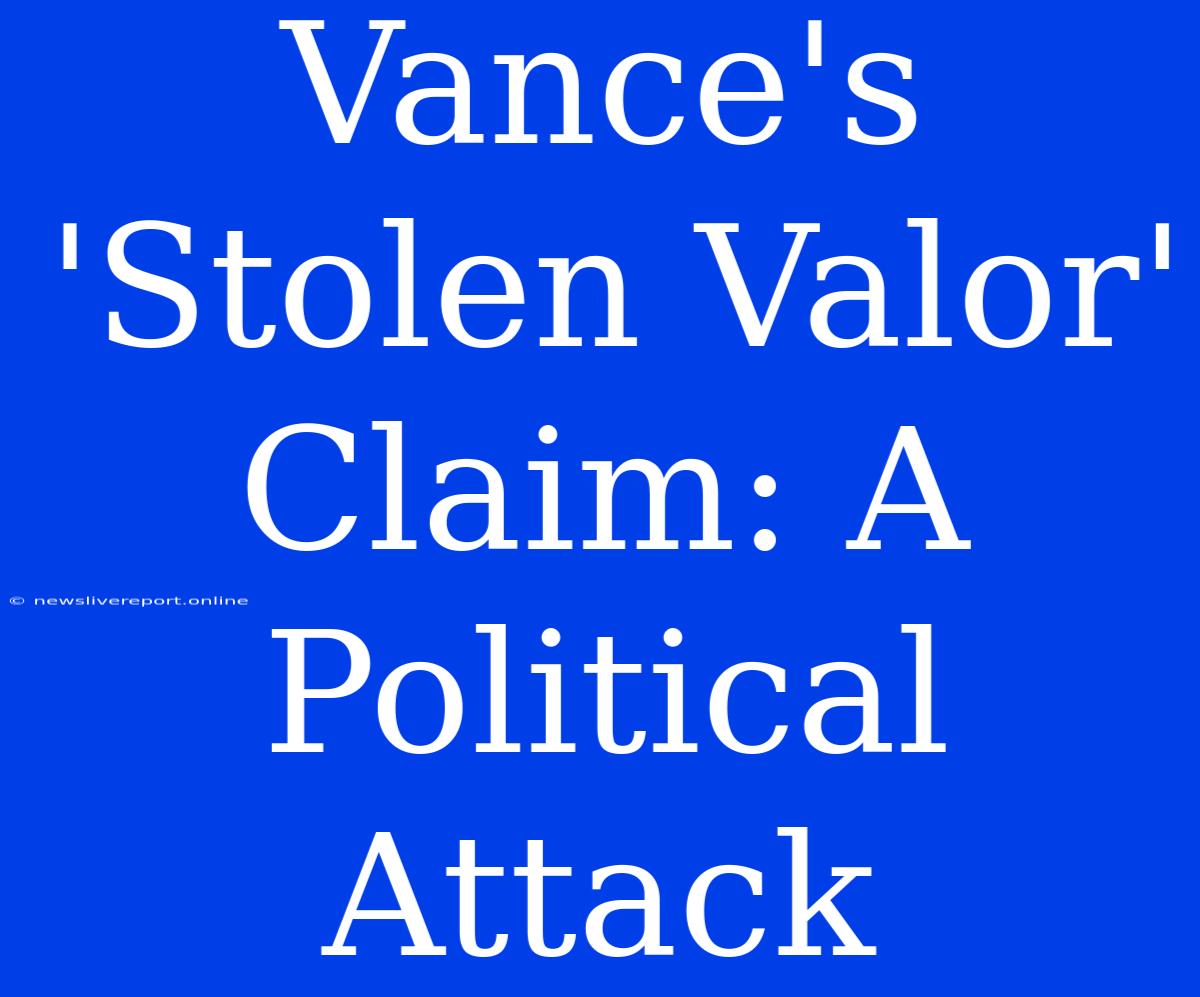Vance's 'Stolen Valor' Claim: A Political Attack or Legitimate Concern?
The recent controversy surrounding Republican Senate candidate J.D. Vance's claim of "stolen valor" has ignited a heated debate, with accusations of political opportunism and concerns about the potential consequences of such allegations.
Vance's claim stems from a 2017 article in the New York Times, which reported that he falsely claimed to have served in the military during a speech at a veterans' event. The article cited multiple sources, including Vance himself, who admitted to exaggerating his military service. Vance has since denied the claims, calling them "completely false" and attributing the discrepancies to "imperfect memory."
While Vance's critics see the accusation as a blatant attempt to exploit the issue of military service for political gain, supporters argue that the accusations are unfounded and politically motivated. They highlight the lack of evidence to support the claim of intentional deception, citing Vance's own explanation of memory lapses.
The controversy has sparked a discussion about the definition of "stolen valor" and the potential consequences of accusing someone of it. The Stolen Valor Act of 2013, which made it a federal crime to falsely claim military honors, was overturned by the Supreme Court in 2012. This ruling raised questions about the legal boundaries of free speech when it comes to military service claims.
Here are some key points to consider:
- The nature of Vance's alleged misrepresentation: Was it a deliberate attempt to deceive or simply a case of exaggerated memory? - The impact of Vance's statements: Did his words cause harm or undermine the genuine experiences of veterans? - The political motivations behind the accusations: Are they driven by genuine concern or simply a tactic to damage Vance's campaign?
The debate surrounding Vance's "stolen valor" claim is likely to continue as the election approaches. This issue raises important questions about the line between free speech and the potential harm caused by misrepresenting military service. Ultimately, it is up to voters to decide whether Vance's actions are a legitimate concern or a politically motivated attack.
Here are some additional factors to consider:
- The potential for political manipulation: The issue of military service is often used to appeal to patriotism and evoke strong emotions. Accusations of "stolen valor" can be a powerful tool for political attacks. - The importance of context: It's crucial to consider the specific circumstances surrounding Vance's statements and the intent behind them. - The impact on public discourse: This controversy highlights the need for responsible and accurate reporting about military service, particularly in a political context.
The debate surrounding Vance's "stolen valor" claim is not just a political spat but a reflection of larger issues surrounding the importance of truth, accountability, and the respect for military service.

